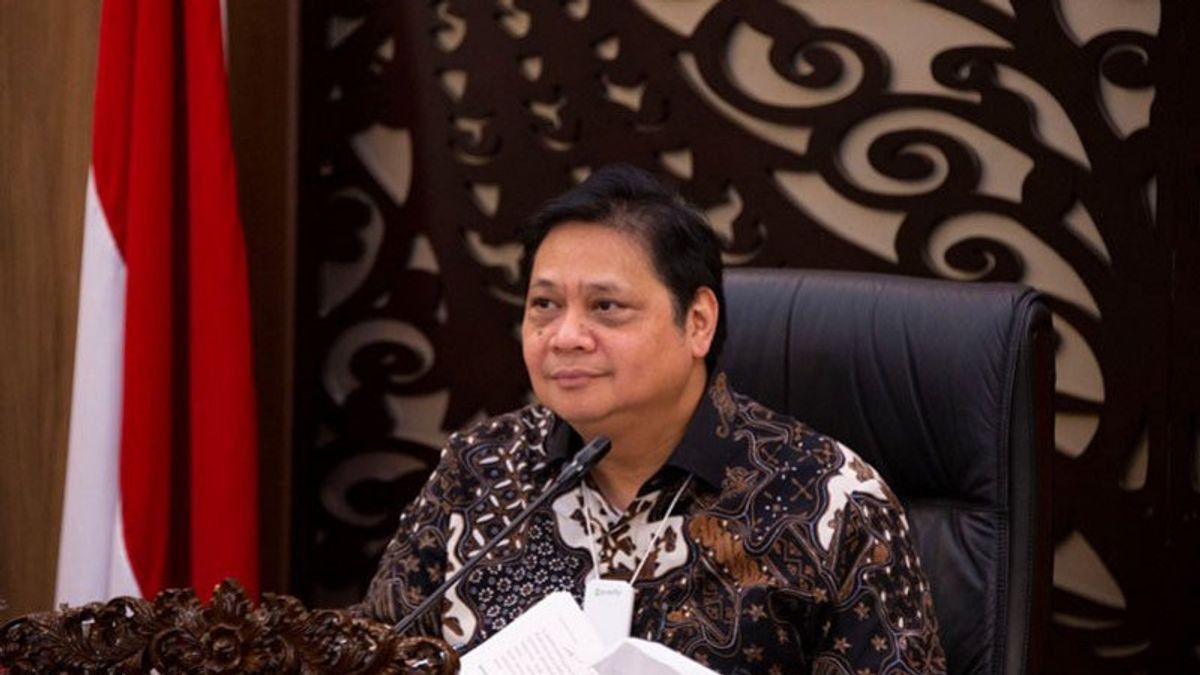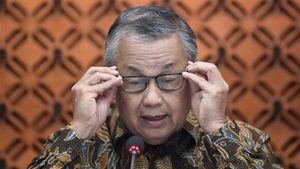JAKARTA - Coordinating Minister for Economic Affairs Airlangga Hartarto said that of the 60 million micro, small and medium enterprises (MSMEs), the majority are women.
This is in line with government programs that encourage women's economic empowerment.
"As many as 50 percent of the 60 million MSME entrepreneurs are women. I note that women can build a much better future generation so that women are able to act as bridges to improve the quality of life in the future," he said in an official statement, Monday, July 25.
Airlangga also said that Indonesia is committed to bridging the gender gap or disparity as an outreach group in the G20 Presidency.
Therefore, she appreciates the idea prepared by the W20 Summit (Women 20) this year.
"The idea prepared by W20 this year can be an opportunity to increase the role of women in sustainable development in the midst of a wave of world challenges," he said.
Meanwhile, the Deputy Chairperson of Komnas Perempuan Mariana Amiruddin revealed that the role and contribution of women was very large in the Indonesian economy. They contribute to both the formal and informal sectors.
"Every woman who works in this sector has a real contribution to the Indonesian economy," he said.
According to her, there is a lot of support from both the government and the community, so that there are more women entrepreneurs in Indonesia than in previous years.
Mariana added that the people's economy that drives the country's economy is also mostly filled by women.
According to her, the government needs to encourage all parties to get the same understanding regarding the role and contribution of women in the economy.
"It is necessary to encourage women who work to be supported by their families. That is the most important thing because they have a double burden. Not only have to think about household conditions, but also have to find money," he said.
Mariana also appreciates the government's program to support women's economic empowerment through the allocation of People's Business Credit (KUR) and the Pre-Employment Card Program.
However, he noted that the program could empower and enlarge the role of women.
"That is indeed quite helpful, but we also need to monitor whether the program can be easily accessed and reached by women," he said.
COVID-19 Pandemic Encourages Women to Do Business from Home
INDEF researcher Nailul Huda revealed that the COVID-19 pandemic was a blessing in disquise for women, where people's shopping patterns changed from offline to online.
This opportunity is used by women entrepreneurs who are empowered from home, using their smartphones, even though it is simple to start a business.
Based on a report from UN Women Indonesia, 58 percent of women's micro-enterprises use the internet, 42 percent do not use the internet, 68 percent of women's small businesses use the internet and 32 percent do not use the internet.
Nailul said that there is a gap in the use of technology and ownership of devices between men and women.
According to him, women's internet access is much lower.
"First, internet access among women is lower than that of men, the ownership of sophisticated devices, such as computers, laptops, is still in the hands of men. Opportunities for women arise from simpler devices," said Nailul.
However, Nailul said, only women with social media and chat applications can start a business. Especially if they are more technology literate and enter the world of e-commerce.
The English, Chinese, Japanese, Arabic, and French versions are automatically generated by the AI. So there may still be inaccuracies in translating, please always see Indonesian as our main language. (system supported by DigitalSiber.id)













